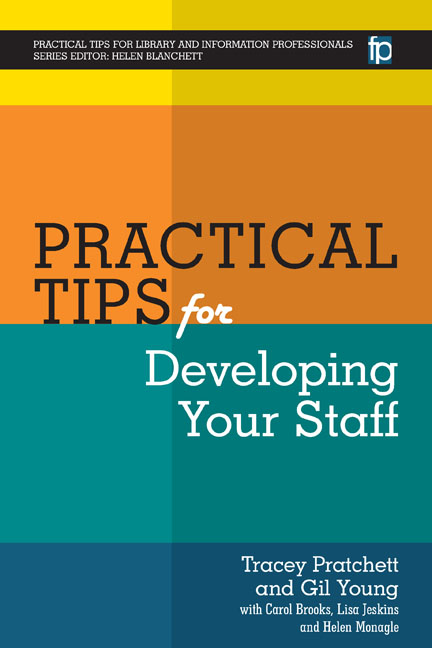Book contents
- Frontmatter
- Contents
- List of figures and tables
- Acknowledgements
- The authors
- List of abbreviations
- Series Editor's introduction
- Introduction
- Section 1 Theories
- Section 2 Infrastructure
- 11 Why develop staff?
- 12 Workforce planning
- 13 Job descriptions
- 14 Person specifications
- 15 Advertisements
- 16 Shortlisting
- 17 Interviews
- 18 Interviews – presentations and tests
- 19 Interviews – feedback
- 20 Inductions
- 21 Managing performance
- 22 Team development plans
- 23 Appraisals – preparing
- 24 Appraisals – conducting
- 25 Setting objectives
- 26 One-to-ones
- 27 Feedback – general
- 28 Team building
- 29 Team meetings
- 30 Sharing learning with the team
- 31 Writing references
- 32 Exit interviews
- 33 Effective handover
- Section 3 Activities and tools
- Index
12 - Workforce planning
from Section 2 - Infrastructure
Published online by Cambridge University Press: 09 June 2018
- Frontmatter
- Contents
- List of figures and tables
- Acknowledgements
- The authors
- List of abbreviations
- Series Editor's introduction
- Introduction
- Section 1 Theories
- Section 2 Infrastructure
- 11 Why develop staff?
- 12 Workforce planning
- 13 Job descriptions
- 14 Person specifications
- 15 Advertisements
- 16 Shortlisting
- 17 Interviews
- 18 Interviews – presentations and tests
- 19 Interviews – feedback
- 20 Inductions
- 21 Managing performance
- 22 Team development plans
- 23 Appraisals – preparing
- 24 Appraisals – conducting
- 25 Setting objectives
- 26 One-to-ones
- 27 Feedback – general
- 28 Team building
- 29 Team meetings
- 30 Sharing learning with the team
- 31 Writing references
- 32 Exit interviews
- 33 Effective handover
- Section 3 Activities and tools
- Index
Summary
WORKFORCE PLANNING IS about having the right staff in the right place at the right time in order to achieve the aims and objectives of the organization or department. At an organizational level it can involve many processes. Listed below are those activities which the Chartered Institute of Personnel and Development (CIPD) has identified as being part of the workforce planning process (CIPD, 2015):
• succession planning
• flexible working
• labour demand and supply forecasting
• recruitment and retention planning
• skills audit gap analysis
• talent management
• multi-skilling
• job design
• risk management
• outsourcing
• career planning
• scenario planning.
Within the context of this book workforce planning is about ensuring that staff have the skills, knowledge, behaviours and levels of experience to do their jobs. It is not about ensuring that every member of staff is able to do everything but more about using your knowledge of your service to ensure that it is as future-proofed as you can make it. It is about understanding your workforce so that you can work together to achieve the aims and objectives of your service.
Activities which will assist you in accomplishing this, many of which are outlined in further detail in the following tips, include:
• identifying the skills, knowledge, behaviours and levels of experience that are essential in ensuring the work gets done at the level required.
• ensuring that more than one team member can demonstrate these if required.
• putting in place a developmental plan to rectify any gaps you identify.
• ensuring that all essential processes are documented to enable team members to carry out each other's roles if someone is absent at short notice or leaves and is not immediately replaced.
• horizon scanning to identify future skills, knowledge, behaviours and level of experience which will become essential in the near future.
• identifying members of your team who demonstrate potential as future managers or leaders and enabling them to develop the skills, knowledge, behaviours and levels of experience which will allow them to progress.
- Type
- Chapter
- Information
- Practical Tips for Developing Your Staff , pp. 30 - 32Publisher: FacetPrint publication year: 2016



